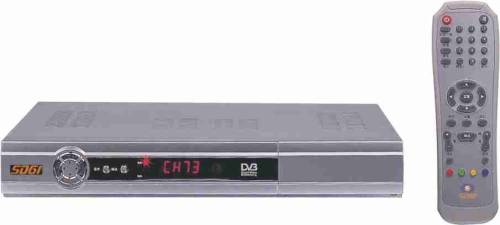Recently I've joined new project targetting STB (set top boxes). STB is a networking device (Ethernet based) that allows you to watch (record in some cases) HD films on your TV screen. I have no TV device in home (who cares TV if Internet is availabe?), but it's interesting to see the direction where current TV devices will go in near future.
Anyway, the most important difference to previous projects is "new" language: no more Java, no more Python, it's C++. You can find few C++ projects I published on SourceForge, but they're created >5 years old now, so I can use "new" word here ;-). The first thought of old Test Driven Design fan when creating development environment was: whre's JUnit for C++?
CppUnit
CppUnit is the most known port of Junit to C++ world. It's pretty mature, full-featured (am I hearing "fat"?) and ... verbose. See the code example:
// Simplest possible test with CppUnit
#include
class SimplestCase : public CPPUNIT_NS::TestFixture
{
CPPUNIT_TEST_SUITE( SimplestCase );
CPPUNIT_TEST( MyTest );
CPPUNIT_TEST_SUITE_END();
protected:
void MyTest();
};
CPPUNIT_TEST_SUITE_REGISTRATION( SimplestCase );
void SimplestCase::MyTest()
{
float fnum = 2.00001f;
CPPUNIT_ASSERT_DOUBLES_EQUAL( fnum, 2.0f, 0.0005 );
}
It's very verbose, indeed. Initially, I wanted to go in that direction but noticed much simpler syntax for declaring tests:
#include "lib/TestHarness.h"
TEST (Whatever,MyTest)
{
float fnum = 2.00001f;
CHECK_DOUBLES_EQUAL (fnum, 2.0f);
}
What was the library?
CppUnitLite
CppUnitLite was written by Michael Feathers, the original author of CppUnit, who decided to leave CppUnit and write something smaller / lighter (do you know this feeling ;-) ). That's why CppUnitLite was born.
CppUnit automatically discovers test cases based on TEST macro and organizes those tests into test suites. Small original code modications allows us to run:
- single test
- single test suite
- any combination of above
I see GoogleTest uses similar syntax for tests declarations. We will switch in the future if CppUnitLite features become too small for our requirements. At this very moment all needs are fulfilled:
- simple, easy to use syntax
- many assertions for comparing results
- light (important for embedded device)
Do you know of another C++ library that is worth considering?
